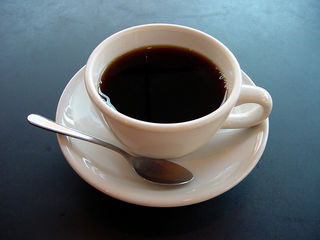Theres no clear link between caffeine intake and depression. 26 2011 -- Some coffee drinkers may have a reason to smile -- or keep smiling.
 How Coffee Helps You Get Rid Of Depression
How Coffee Helps You Get Rid Of Depression
Caffeine is a stimulant found in many beverages such as coffee soda and energy drinks.

Coffee and depression. 6 Note that since 80 of caffeine consumption is in the form of coffee most but not all studies use coffee as a source of caffeine. Caffeine and depression. Drinking a cup of caffeinated coffee gives you a boost of energy that can lift you out.
The positives From a short-term standpoint caffeine has proven helpful for college students getting through stressful times like deadlines. Some experience the mood boost more than others. The results from observation studies on the relationship between coffee intake and risk of depression and the relationship between caffeine consumption and depression remain controversial.
If coffee helps increase motivation and the ability to feel pleasure by binding to. The major classes of antidepressants are selective serotonin reuptake inhibitors or SSRIs. Caffeine stimulates the central nervous system and acts as an antidepressant by elevating serotonin and dopamineits even been shown in the Archives of Internal Medicine to lower suicide rates.
Coffee also contains chlorogenic acid ferulic acid and caffeic acid. So caffeinate beverages which include a cup of joe can be part of a stress-alleviation strategy. A small Finnish study on middle-aged men with depression found that drinking coffee reduced the risk of depression and that the more coffee they consumed the lower their risk of depression.
Caffeine can cause sleep problems that affect mood. Two typical characteristics of depression are anhedonia the inability to feel pleasure and a lack of motivation. Research on coffee and depression.
Coffee Protects Against Systemic Inflammation Lowers Anxiety AND Depression Coffee Can Also Fix Intestinal Permeability or Leaky Gut Coffee As A Natural Anti-Depressant Boosts Dopamine And Allopregnanolone How Drinking Coffee Can. These acids can reduce the inflammation of nerve cells that takes place in the brains of people with depression. Experts propose that caffeine facilitates the transmission of serotonin and dopamine which contribute to depression.
Monoamine oxidase inhibitors or MAOIs. Drinking coffee can reduce depression risk by up to one third according to a comprehensive new review conducted by a leading researcher in neurology at Harvard Medical School. Another study found a connection between decreased depression and coffee consumption but no connection when other caffeinated drinks.
Caffeine can make it harder to fall asleep and stay asleep. Lifestyle Changes That Help With Depression Caffeine is a stimulant found in food and beverages like coffee. For example one study found that among healthy college students moderate and high coffee drinkers scored higher on a depression scale than did low users.
Antidepressants are a specific class of prescription medication designed to improve mood. A new study led by Harvard School of Public Health HSPH researchers found that among women drinking coffee may reduce the risk of depression. Coffees positive impact on mental health appears to be related to its anti-inflammatory anti-oxidative and microbiome-promoting properties which are also associated with coffee drinkers reduced risk of.
Drinking this many caffeinated beverages can cause negative effects expanding beyond your mood including insomnia an upset stomach and muscle tremors. If coffee helps increase motivation and the ability to feel pleasure. While some studies have found an.
However caffeine intake and depression may be linked indirectly for people who are particularly sensitive to the effects of caffeine or who have too much caffeine. Several studies have looked at caffeine intake and depression. Drinking several cups a day is linked with a lower risk of depression according to a.
Two typical characteristics of depression are anhedonia the inability to feel pleasure and a lack of motivation. Most reports of coffee being linked to an increased risk of depression involve an overconsumption of caffeine meaning an excess of 400 milligrams per day.









